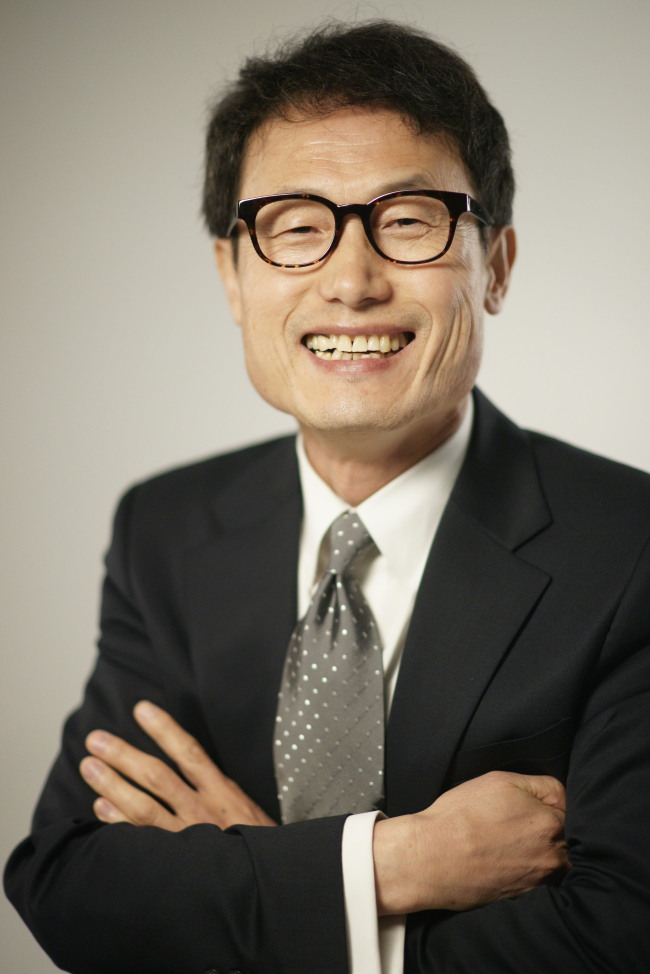[Herald Interview] ‘Education welfare is not a matter of choice’
Cho Hi-yeon, liberal candidate for Seoul education chief, says Korea should become a welfare state
By Yoon Min-sikPublished : May 28, 2014 - 21:08
Despite being one of the lesser-known candidates in the June 4 local elections, Cho Hi-yeon is no stranger to those familiar with Korea’s social movements. The sociology professor spent his early days fighting the iron-fisted rule of former president Park Chung-hee and has devoted much of his life to civil rights activism.
The 57-year-old said he would now focus on transforming Korea into a welfare state, a large-scale project which must start with educational welfare. He said the nation must put more effort into assuring that no one is deprived of the fundamental right of receiving a proper education.
“As people face more hardship, there is a growing demand for welfare. The political circles have begun recognizing this trend, and we must use this opportunity to emerge as a welfare state,” said the liberal candidate for the position of Seoul education superintendent.
The 57-year-old said he would now focus on transforming Korea into a welfare state, a large-scale project which must start with educational welfare. He said the nation must put more effort into assuring that no one is deprived of the fundamental right of receiving a proper education.
“As people face more hardship, there is a growing demand for welfare. The political circles have begun recognizing this trend, and we must use this opportunity to emerge as a welfare state,” said the liberal candidate for the position of Seoul education superintendent.

Korean sociologists specifically regard a welfare state as a society that sets its citizens’ pursuit of happiness and welfare as the primary goal.
Cho’s policies include expanding the free lunch program, which currently only targets elementary school students, to those in middle and high school. He also vowed to add one year of kindergarten to the regular state-funded education program.
Cho particularly stressed the importance of free lunches, one of the hot-button issues in the race. Conservative candidates such as Moon Yong-rin, incumbent chief of the Seoul Metropolitan Office of Education, have publicly denounced the free education and lunch programs for supposedly gobbling up all the office’s budget, which he says should be spent on safety education and repairing old school buildings.
Moon and Koh Seung-duk, another conservative candidate, said they would retain the free lunch program, but added it might gradually be reduced to raise the budget for safety related policies.
Cho said the conservatives are distorting the facts to make it sound like people have to choose between educational welfare and safety. “If they are correct, the safety in developed European countries that have huge welfare budgets should be horrible. But we all know that is not the case.”
According to the Organization of Economic Cooperation and Development, social spending for OECD countries in 2013 amounted to an average of 21.9 percent of their gross domestic product. Although Korea’s numbers for 2013 were not yet available, its social spending in 2012 accounted for only 9.3 percent of the GDP in 2012, the lowest in the OECD except for Mexico.
In addition to emphasizing welfare, Cho said he would focus on providing equal learning opportunities for students. “I believe Korea is a society that has strong passion toward equality, especially in education. Everyone is a parent, and no one wants their children to receive a second-rate education,” he said.
One of his key pledges is to abolish autonomous private high schools, de facto elite schools that are granted much more leeway in their curriculum in exchange for not receiving government funds. Tuition fees for these schools are around three times higher than those for regular high schools.
Cho admitted that it was impossible to eradicate all inequality among schools. Some schools are more preferred than others for various reasons, mainly the number of graduates who have been granted admission to prestigious universities.
“Realistically there will always be some sort of ranking between schools. But I do not think there should be structurally different elite schools that are literally above others,” he said. “There will be some barriers to entering elite schools, but money should not be one of them.”
Cho’s idealistic approach has been criticized by those who question how he will fund all his policies. He said in order for the welfare system to firmly take root in the educational sphere, the government and the people should financially support it.
“The government is headed the right way in introducing policies like afterschool child care centers, but they should take care of the budget problem. There is a tendency to dump much of the financial burden on education offices,” he said. Ultimately, Cho said people should be prepared to pay more taxes for public welfare.
“There is no way around it. People are just going to have to pay more. It should not be about choosing between the existing policies, but adding the welfare policies on top of them,” he said. “It is an inevitable growing pain for Korea to become a welfare state.”
By Yoon Min-sik (minsikyoon@heraldcorp.com)



















![[Today’s K-pop] Treasure to publish magazine for debut anniversary](http://res.heraldm.com/phpwas/restmb_idxmake.php?idx=642&simg=/content/image/2024/07/26/20240726050551_0.jpg&u=)